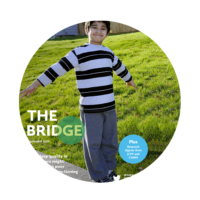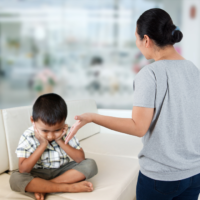Callous-unemotional (CU)
-

Treatment of Conduct Disorders: Tailoring Approaches to Different Subtypes and Clinical Presentations
Join Professor Stephen Scott (ACAMH President) for a practical and insightful webinar on the treatment of conduct disorders in children and adolescents. This session will explore how to tailor interventions to different subtypes and clinical presentations, including comorbid ADHD, callous-unemotional traits, irritability, and treatment resistance.
- Event type
- Introductory and Update Session
- Location
- LIVE STREAM
-

Treatment of Childhood Disruptive Behaviour Disorders and Callous-Unemotional Traits
In this Papers Podcast, Samantha Perlstein discusses her co-authored JCPP paper ‘Treatment of childhood disruptive behavior disorders and callous-unemotional traits: a systematic review and two multilevel meta-analyses’. Samantha is the first author of the paper.
Read more -

Commentary: Optimism and guidance for improving treatment effects among children with callous-unemotional traits – reflections on Perlstein et al. (2023)
Open Access paper from the JCPP – ‘The results of Perlstein et al. (2023) offer the first meta-analytic evidence against the long-held belief that CU traits confer treatment resistance. […] I argue that Perlstein et al. (2023) offer both optimism and guidance for improving treatment effects among children with conduct problems and CU traits’. Georgette E. Fleming (pic)
Read more -

A developmental language disorder might increase the risk of reoffending
Researchers in the UK are the first to identify the potential impact of a developmental language disorder (DLD) on reoffending risk in young people. Maxine Winstanley and colleagues recruited 145 young offenders to their study.
Read more -

Is formal processing through the juvenile justice system linked with an increased risk of reoffending?
Data from a new study published in the Journal of Child Psychology and Psychiatry support that formally processing adolescents through the juvenile justice system after their first arrest for a mild-to-moderate crime is linked with an increased risk of reoffending.
Read more -

September 2020 – The Bridge
The month of September is a challenging time for young people, as they start a new school year. September 2020 will be particularly difficult for many, as they must also deal with the stresses of the coronavirus pandemic and social distancing, as well as the effects of increasing financial pressures on families.
Read more -

Genetic and environmental influences on callous-unemotional traits vary with age
Research on callous-unemotional (CU) traits explores the relative importance of genetic versus environmental influences on the initial risk and trajectory.
Read more -

Psychological interventions have a small but significant effect in young children with conduct disorder
In 2017, Mireille Bakker and colleagues performed a systematic review and meta-analysis for the Journal of Child Psychology and Psychiatry, of the currently available psychological treatments for children and adolescents with conduct disorder problems. Here, we summarise the researcher’s key findings and the potential clinical implications for this field.
Read more -

Most Cited JCPP Articles #12 of 60
Most cited JCPP papers #12 of 60: Research Review: The importance of callous-unemotional traits for developmental models of aggressive and antisocial behavior
Read more -

Most Cited JCPP Articles #23 of 60
Most cited JCPP papers #23 of 60: Evidence for substantial genetic risk for psychopathy in 7-year-olds
Read more